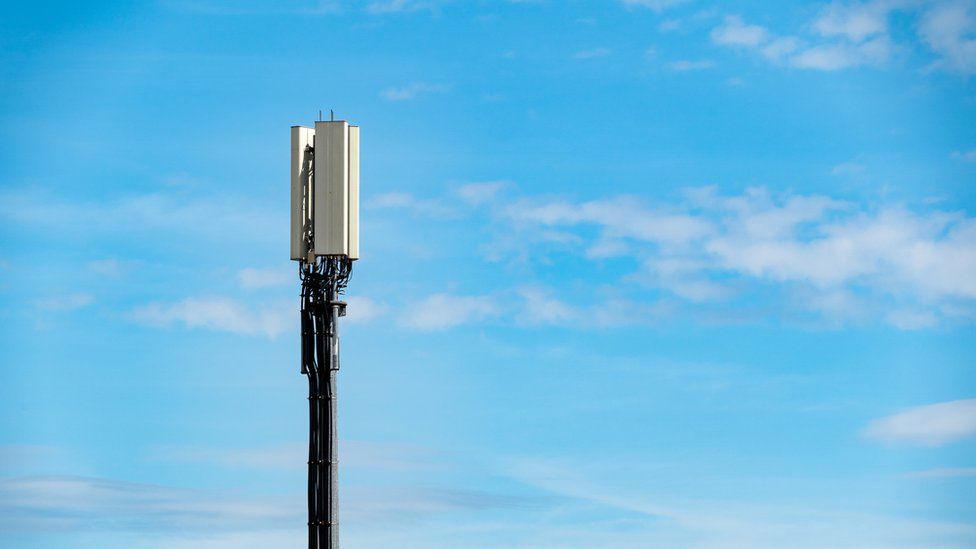Vodafone picks Samsung for 5G network
- Published

Vodafone UK has chosen Samsung as a supplier for its 5G infrastructure, as it seeks to extend its coverage.
One analyst described the move as a "breakthrough" for Samsung, in a market expected to be dominated by Ericsson and Nokia, after the UK joined other countries in banning Huawei products.
Vodafone says it aims to broaden its range of suppliers.
Samsung kit will initially be installed in 2,500 rural sites in the south-west of England and most of Wales.
The South Korean firm is one of a number of companies contracted by Vodafone to build what it calls, "the "first commercial deployment of Open Radio Access Network (Open RAN) in Europe".
The Radio Access Network covers the equipment that provides the final link between your phone and the telephone network, and includes equipment such as mobile phone antennas on towers and buildings.
With Open RAN, parts of the network made by different suppliers are designed to work in the same way, meeting a common set of standards.
Because equipment from different suppliers is interoperable, the network can be put together using components from a range of companies, rather like Lego, as opposed to being built by a single supplier.
Johan Wibergh, Vodafone's chief technology officer, said using Open RAN would allow the company to release new features simultaneously across multiple sites, add capacity more quickly and resolve outages "instantly".
This feels like a key moment in the UK's 5G story.
Ever since the mobile operators were told they were going to have to phase out Huawei's equipment, they've been faced with a very limited choice - either Nokia or Ericsson - for their 5G kit. That, they warned, could mean higher prices and a slower rollout.
But now Samsung, which had long been considered to be out of the game in Europe's telecoms equipment market, has made a stunning comeback and broken up the duopoly. Other deals seem likely to follow.
This is also a big step forward for the OpenRan concept, which would allow components from different suppliers to be switched out at base stations that, until now, have been kitted out by a single supplier.
The UK government - keen to limit the fallout from its Huawei ban - has been pushing the idea in the hope that it would bring more suppliers into the market.
But Nokia and Ericsson have already signed multiple 5G deals in the UK and have a big lead, which they will fight aggressively to defend.
New contender
In July 2020, the UK's mobile providers were banned from buying new Huawei 5G equipment and told they must remove all the Chinese firm's 5G kit from their networks by 2027.
It followed concerns that using the firm's equipment posed a national security threat - something Huawei strongly denied.
Analysts saw this as a significant step for Samsung as it seeks to compete with the leading firms in the market.
"This partnership represents a major market breakthrough for Samsung," analyst Richard Webb, of CCS Insight said.
Samsung still had a long way to go to catch up with Ericsson and Nokia, he noted, but should be seen as "a genuine contender".
Mr Webb added: "This contract win adds to its credibility, and could be a signal for other European operators to consider Samsung as an option."
He also noted that Open RAN may be helpful to companies like Samsung seeking to challenge dominant players in the market.
"Vendor diversity is one of the principal tenets of the concept," he said.
Related Topics
- Published16 July 2020
- Published9 July 2020
- Published14 July 2020